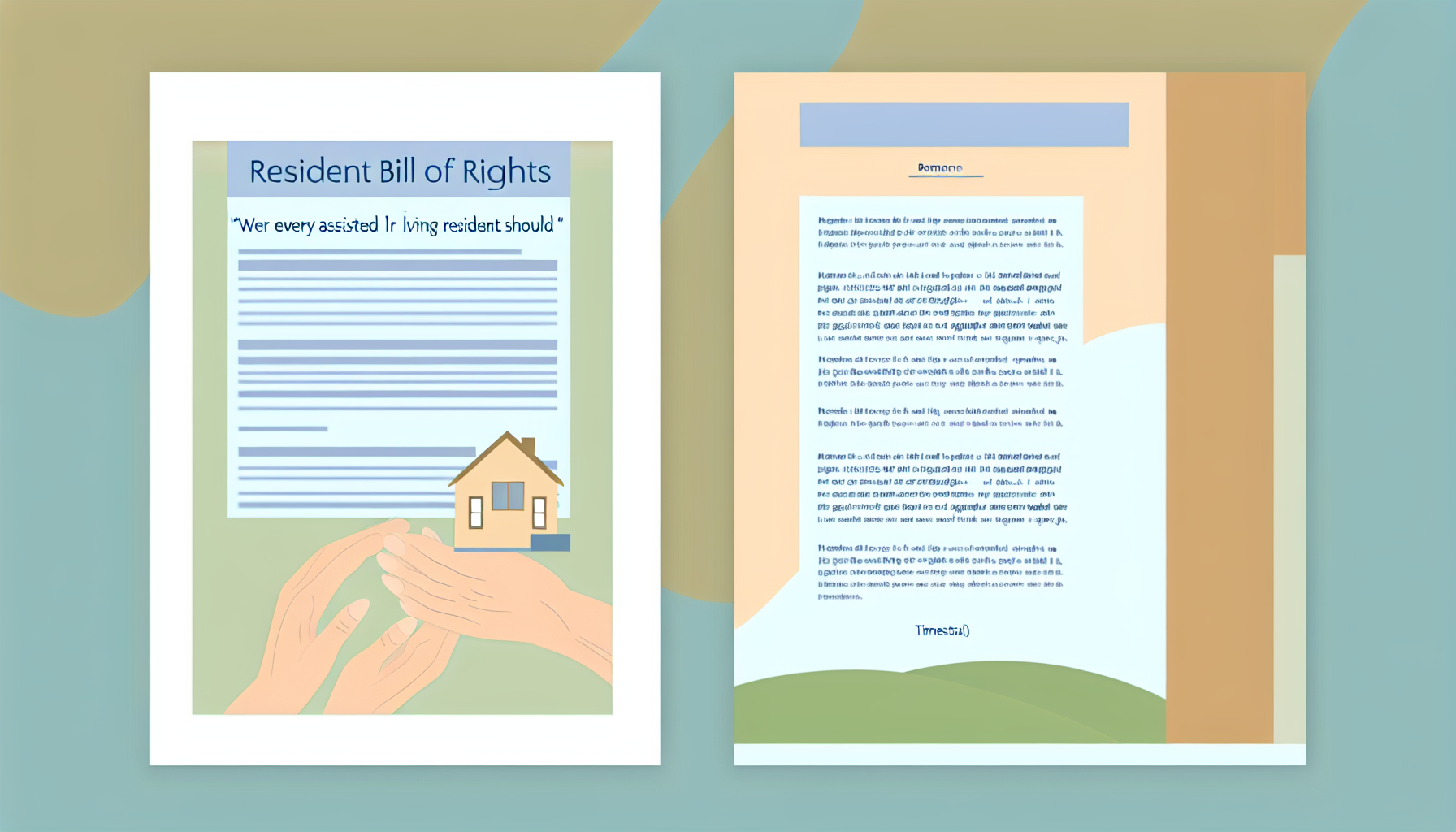 Back to
blogs
Back to
blogs

The resident rights assisted living residents enjoy are protected by both state and federal laws. As families and seniors navigate the process of choosing the right assisted living community, understanding these legal rights is vital for protection, dignity, and ensuring a high quality of care. This comprehensive guide outlines the fundamental resident bill of rights, explains what to do if you suspect a violation, and offers practical advice for residents, family members, and advocates alike.
Resident rights assisted living is a set of legal protections and guarantees for individuals living in assisted living facilities, ensuring their dignity, personal autonomy, and the right to participate in care decisions without abuse or neglect.
Assisted living facilities are designed to strike a balance between independence and support, but residents are entitled to the same basic rights as they would be anywhere else. These include privacy, autonomy, freedom from discrimination and abuse, and the right to participate in or refuse care decisions. Most states require assisted living communities to prominently display their Bill of Rights and distribute it to new residents and their families.
Resident rights in assisted living refer to the legal and ethical protections granted to individuals living in assisted living facilities. These rights ensure that residents are treated with dignity, respect, and autonomy, and that their physical, emotional, and social needs are met in a safe, supportive environment.
Here are the most widely recognized rights across the U.S. (exact laws may vary by state):
Private space and personal belongings
Confidentiality in medical and personal records
Private communication (phone, mail, internet, visitors)
Treated with courtesy, dignity, and without discrimination
Freedom from abuse, neglect, or exploitation
Be informed about care plans and treatments
Refuse medications or treatments
Choose their physician or pharmacy in some states
Come and go freely (within facility policies)
Make choices about daily routines, meals, and activities
Keep control of personal finances if desired
A clean, safe, and well-maintained living environment
Prompt response to emergencies or requests for help
Understand facility policies, fees, services, and grievances
Be notified of changes in services or charges
File complaints or grievances without fear of retaliation
Access to an ombudsman or advocacy agency
Accept visitors during reasonable hours
Participate in social, religious, and recreational activities
In the U.S., these rights are supported by:
State licensing laws
The Assisted Living Resident Rights Bill (varies by state)
The Long-Term Care Ombudsman Program (federally funded)
Some rights also align with HIPAA and Americans with Disabilities Act (ADA)
Understanding these rights:
Helps residents advocate for themselves
Gives families peace of mind
Holds assisted living providers accountable for quality care
Resident rights assisted living laws vary by state, but nearly all align with federal civil rights and elder protection statutes. Notable frameworks include:
| Pros | Cons | |
|---|---|---|
| Assisted Living | - Promotes independence while ensuring safety - Residents have legal rights and personalized care plans | - Limited medical support compared to nursing homes - Quality varies by facility; rights enforcement can be inconsistent |
| Nursing Homes | - 24/7 medical monitoring and skilled nursing care - More robust federal and state oversight | - Less personal autonomy; institutional setting - May be costlier and more restrictive for active seniors |
| Feature | Resident Bill of Rights: What Every Assisted Living Resident Should Know | Alternative (Nursing Home) |
|---|---|---|
| Monthly Cost | $3,500–$6,000 (varies by region and facility) | $7,000–$10,000 (nationwide average, higher for specialized care) |
| Care Level | Personal care, meals, housekeeping, wellness monitoring | 24/7 skilled nursing, therapies, extensive clinical support |
| Resident Autonomy | High—choice in daily routine, activities, meals | Medium to low—medical routine dominates daily life |
| Regulatory Oversight | State licensing & ombudsman programs; some variability | Federally certified Medicare/Medicaid regulation; stringent enforcement |
Many facilities offer pricing tiers based on the level of assistance or specialized services required. Medicaid waivers or long-term care insurance may offset some costs, but coverage varies widely. Residents and families should always request a full fee breakdown and inquire about state aid, VA benefits, or other subsidy options.
If you suspect that resident rights assisted living standards are not being honored, take prompt and assertive action:
Remember, federal and state protections prohibit retaliation against residents or families who make good-faith complaints.
Q: What is resident rights assisted living?
A: Resident rights assisted living refers to the legal guarantees and standards ensuring seniors in assisted living communities are treated with dignity, respect, and autonomy, and can participate in care decisions without fear of abuse or neglect.
Q: How does it compare to alternatives?
A: Assisted living offers a unique blend of personal independence and support. Unlike nursing homes, it focuses on non-medical care with an emphasis on resident autonomy, but also comes with strong legal protections specific to this care setting.
Q: What are the typical costs?
A: The national average is $3,500–$6,000 per month for assisted living, but costs vary based on location, room type, and required services. Additional fees apply for memory care, medication management, or one-on-one support.
Q: Is this option right for families?
A: Assisted living is ideal for seniors who need help with daily activities but wish to remain socially engaged and semi-independent. Families appreciate the peace of mind that comes with enforceable resident rights and oversight.
Q: Are any services covered by insurance?
A: While Medicare typically does not cover assisted living, veterans benefits, long-term care insurance, and Medicaid waivers (in some states) may help. Always verify with your policyholder and ask the facility about available subsidies.
Understanding resident rights assisted living is critical for making confident, informed decisions about senior care. These rights provide security, respect, and dignity to all residents—and offer families recourse if problems arise. For further guidance, Explore our expert resources or visit the National Institute on Aging for authoritative information on elder care laws and assisted living standards.